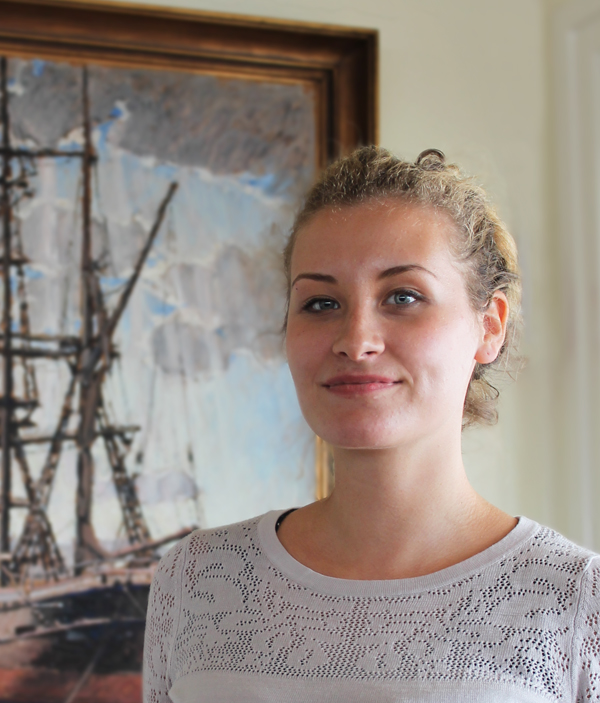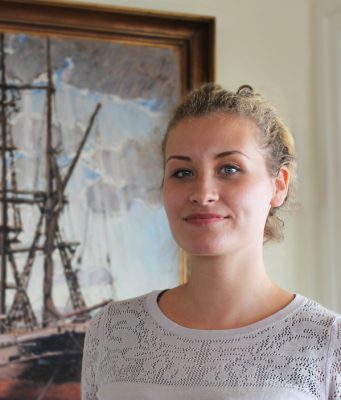 |
| Jennifer Linder is an intern at the ÅIPI during autumn 2014. Jennifer is studying for a bachelor’s degree in international social work at the University of Gävle. She is interested in pursuing work related to questions of equality and wrote her thesis about men who get subjected to intimate partner violence within heterosexual relationships. |
Mariehamn, 12.11.2014
An initiative to overlook policies ensuring “lifelong learning for all” was adopted by the OECD in 1996. Within this agreement both non-formal and informal learning became recognized as valid learning approaches, indirectly broadening the concept of knowledge to include more than the outcomes of formal education.
If formal learning is well-structured with intentional aims of achieving specific learning outcomes, informal learning exist far on the other side of the learning spectrum; acknowledging daily generated life experience as a type of education. Situated in the middle of these approaches and bordered by both, the unique essence of non-formal learning can be hard to pin-point. However, on the home page of OECD it is understood as follows:
“[…] it seems clear that non-formal learning is rather organised and can have learning objectives. The advantage of the intermediate concept lies in the fact that such learning may occur at the initiative of the individual, but also happens as a by-product of more organised activities, whether or not the activities themselves have learning objectives.”[1]
During little over a week in the end of September, 2014, I and two other representatives from the Åland Islands Peace Institute and another island based NGO, SKUNK, went to Kobuleti (Georgia) to take part in a training in the Girl and Boy Group Method for working with youth. Alongside the Åland Islands, NGO’s from Azerbaijan, Hungary, Latvia, Romania, Turkey, Ukraine and naturally the host nation Georgia sent participants for the training. In total a group of 21 participants and three organizers gathered through what was named the Me&You project, taking part in workshops as well as living together while cultivating postmodernist values of learning from the different experiences and realities of each other.
I don’t know if the outspoken goal of the Me&You project was for its participants to take part in an 8-day training in non-formal learning. But activities where we individually or jointly got to create, imagine or solve different situations (followed by reflection) were exclusively used to further group learning.
Finally the days spent experiencing non-formal learning first hand culminated in an opportunity to pass the experiences forward through the conducting of workshops with the local community. The local community in this case consisted of representatives of the local municipality, an NGO working with HIV prevention and a university class. The participants of the Me&You training hence divided into three smaller groups (based on individual preference) devoted to modifying a commonly created workshop template to fit each of our target groups. The common theme for all of the workshops was sexual education and the methods used were chosen from the large number of exercises we had experienced during the training.
Before setting off to conduct our workshops the group going to the local municipality expressed doubts regarding whether the non-formal learning approach would be appropriate for their designated setting. Having the workshop rejected as silly or irrelevant by ‘important people’ was a specific fear that some of the participants identified.
On the actual day of the workshops my group got to sit down in an office confronted with the questioning faces of staff members at the NGO. Our training facility for the week had provided a safe haven for non-formal learning, disarming me of my initial scepticism within a few days. However, faced with a smaller group of participants than estimated in a smaller office than expected, we were immediately confronted with some of the more irregular conditions of non-formal learning. Consequently we had to quickly, and with a minimum of verbal interaction, change parts of the material to suit the situation at hand.
Meanwhile in another part of the same city our municipality group had become witness to an intense discussion about traditional versus public child care, considering women’s career opportunities in relation to their traditional roles as care givers. Various arguments, at times contradictory, were brought up and one Me&You participant said that it felt as if the workshop had managed to scratch a little bit on the diplomatic municipality-surface to get into the real opinions of its representatives.
In the NGO, however, we were dealing with an increasingly tougher crowd. After the presentation comments such as comparing our workshop to children’s play were made in Georgian, preventing the majority of our group from taking part of the criticism. And when time came to introduce our first activity we got informed that the 2-hours allotted to our workshop were not available due to misunderstandings of some sort. Thus we jumped straight to our last exercise and ended the workshop roughly 30 minutes after we had arrived.
And what happened to the group going to the university one might wonder. Well, a participant of that group explained that the workshop started with varying enthusiasm on the part of the
[1] OECD-webpage. Available at: http://www.oecd.org/edu/skills-beyond-school/recognitionofnon-formalandinformallearning-home.htm [accessed: 16th October 2014]



